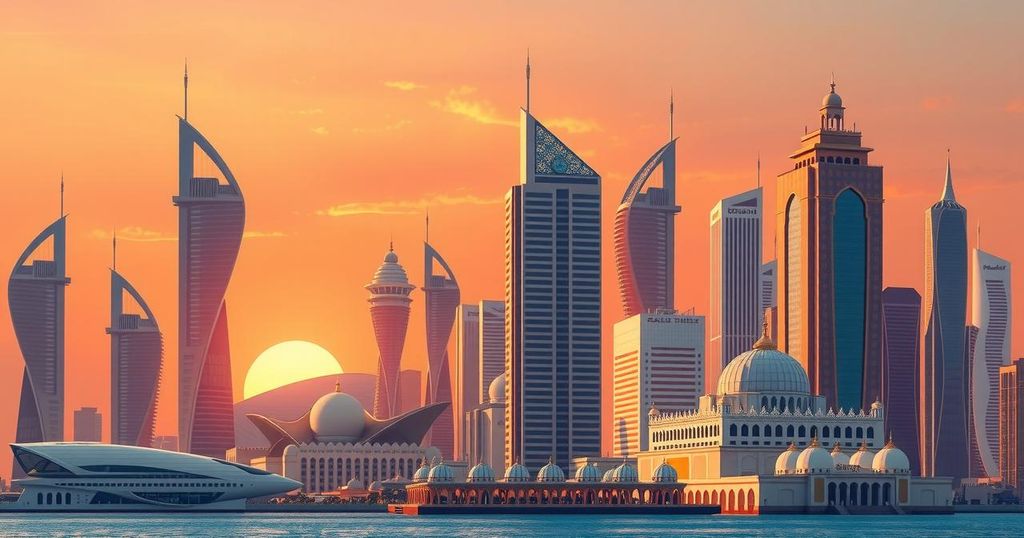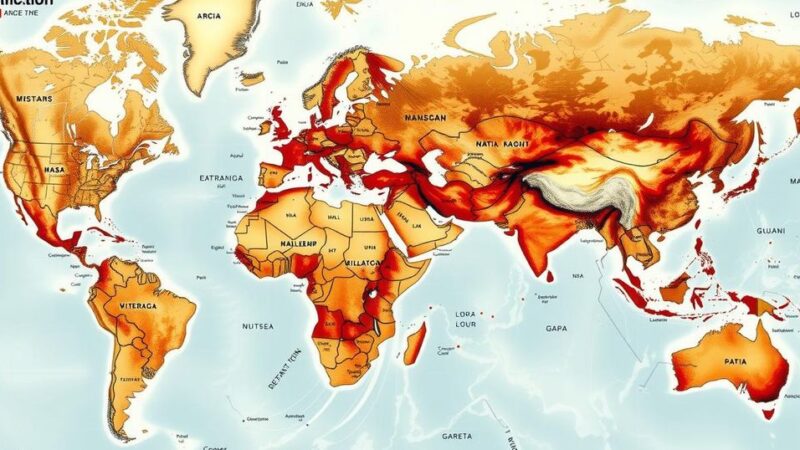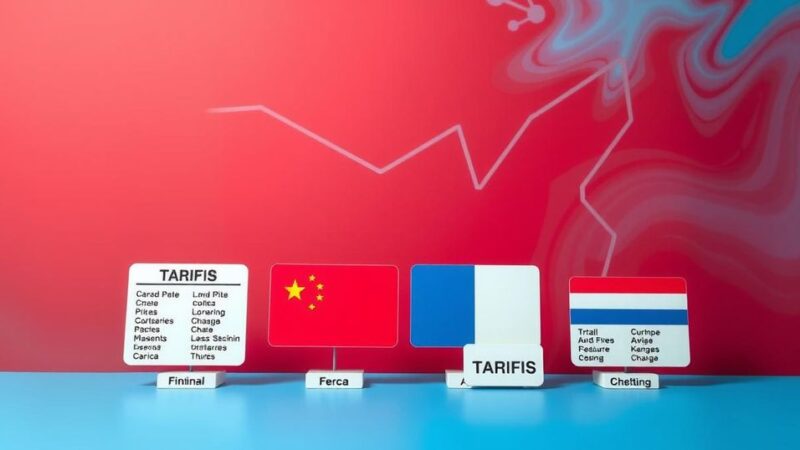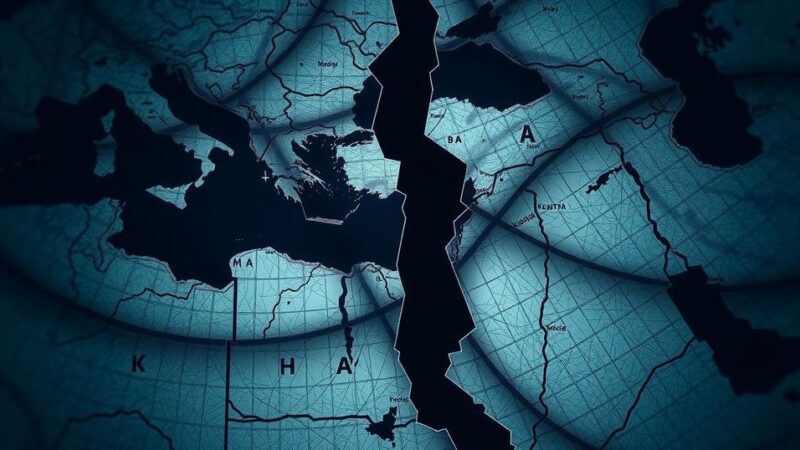Saudi Arabia is attempting to rebrand itself as a global power broker by hosting international summits and fostering diplomatic ties, particularly under the leadership of Crown Prince Mohammed bin Salman. Despite significant reforms, the kingdom’s human rights record remains a point of contention. The nation aspires to transition from a labeled ‘pariah’ into a key facilitator in global conflicts while engaging in extensive economic diversification and cultural initiatives.
Saudi Arabia seeks to redefine its global standing by presenting itself as a significant mediator in international conflicts. A notable instance is the upcoming summit in Jeddah, which will see participation from U.S. Secretary of State Marco Rubio and Ukrainian President Volodymyr Zelenskyy. This event underscores Saudi Arabia’s strategy to cultivate relations post-controversial encounters between Zelenskyy and U.S. officials.
In recent years, Saudi Arabia has emerged as an unlikely diplomatic power, through its efforts to host negotiations related to the Ukraine conflict and facilitate discussions on issues such as Gaza. The nation’s efforts to transition from being labeled a “pariah” to a global power broker are largely attributed to Crown Prince Mohammed bin Salman (MBS), who aims to reshape the kingdom’s international image.
Less than five years ago, President Joe Biden referred to Saudi Arabia as a “pariah.” Despite recent reforms, the kingdom’s human rights record remains under scrutiny from international watchdogs. Nonetheless, MBS is actively pursuing a vision to shift Saudi Arabia from a conservative oil-based economy towards one enriched by diplomacy, commerce, tourism, and entertainment.
Thomas Lippman of the Middle East Institute emphasizes that the contemporary Saudi Arabia is “more visible and energetic” than in the past. MBS has not only initiated high-profile international engagements but also marked the return of Trump to Saudi Arabia for his first foreign trip during a potential second term.
The ties between Riyadh and the Trump family raise concerns regarding conflicts of interest, particularly surrounding significant investments from Saudi Arabia into businesses connected to Trump’s family. These complex ties highlight the intricate relationship between the Saudi state and private business interests.
Beyond Trump-related affairs, Saudi Arabia has also acted as a facilitator for U.S.-Russia discussions, promoting itself as a credible venue for diplomacy within the global arena. Analysts note that the kingdom aims to position itself as a viable alternative to traditional diplomatic hubs like Geneva.
Simultaneously, the kingdom is investing heavily in its Vision 2030 initiative, which seeks to diversify the economy through massive infrastructural projects. In alignment with these efforts, Saudi Arabia has also embraced cultural exchanges, demonstrated by its hosting of international entertainment events and investments in global sports, including the English Premier League.
Despite various reforms, such as expanding women’s rights and leniencies regarding public dress codes, Saudi Arabia continues to face allegations of significant human rights abuses. Reports from the State Department outline serious violations including unlawful killings and repressive measures against dissent.
Furthermore, perceptions of Saudi Arabia in the diplomatic community have shifted, likening its political landscape to that of China, where engagement is favored despite notable human rights violations. This nuanced view highlights the kingdom’s growing importance on the global stage, despite ongoing criticisms regarding its internal policies and governance.
In summary, Saudi Arabia is actively endeavoring to reshape its international reputation from a ‘pariah’ to an influential global mediator. Crown Prince Mohammed bin Salman’s initiatives, including hosting international summits and spearheading economic reforms, reflect a strategic pivot towards soft power. However, the nation continues to grapple with significant human rights concerns that overshadow its diplomatic advancements. As the kingdom unfolds its Vision 2030 and seeks deeper ties with various countries, it remains a complex player in the global arena, balancing reform with longstanding criticism.
Original Source: www.nbcnews.com






